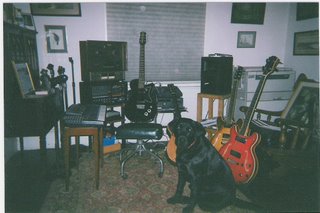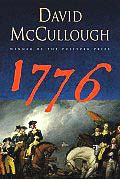Courtroom Impressions
This is a response paper I did for a criminal justice class I took last spring
On Wednesday, April 5th I attended the proceedings for a capital murder trial in Guilford County courtroom 4c. The defendant in the trial is Fantoine Cummings who is charged with first degree murder committed on December 15th, 2003. The trial was in its third day when I attended, and the jury was still in the process of being selected. I stayed for the questioning of four jurors, only one of whom was picked for the jury. This process took about four hours, with a twenty minute break at midmorning. During the process many interesting events occurred, and any preconceived notions I had about how this process takes place were either confirmed or dispelled as I watched the real life procedure of arguing for a man’s guilt or innocence and, ultimately his life, unfold. I was ready for all of the ingrained preconceptions I had about how the court system works to be dispelled, but I found out that many of the events that are depicted on television actually happen in a courtroom as well, just without the high drama. The main overall impression I got was that the courtroom is a bureaucratic, impersonal place, but that the attorneys add a high degree of personality to the room while arguing for a conviction or an acquittal. This is one impression that, for me, was unexpected coming from what I knew about courtroom procedure based almost solely on the modern media.
The first time I can remember being enthralled by a dramatic depiction of courtroom events was watching Twelve Angry Men with Henry Fonda when I was about ten. I got wrapped up in the argument over the guilt or innocence of a young man and Fonda’s stubborn refusal to take the easy way out and convict the defendant. To Kill a Mockingbird also helped form my opinion about how the justice system worked in our country. Movies such as these made it seem that the justice system was capable of gross errors, and that strong individuals were needed to stand up to a system that might be faulty, misguided, racist, or all of the above. The reason these movies are popular is because the hero can be depicted as a champion of the underdog, or even an underdog himself as in movies like The Rainmaker and The Verdict. There would be no reason to write a screenplay about a man who murders his wife and the evidence is so overwhelming that the man pleads guilty and is sentenced to life in prison. There is no plot there. So our ideas about the justice system are based on depictions of circumstances that are rare, because there is a much more compelling story if there is an underdog or a social issue involved.
There is another element to what we may think the justice system is and what it really is. This is the time element. This was demonstrated to me on the day I went to court. What was hard for me to understand until I experienced it first hand was that justice takes much longer than fifty minutes (that’s allowing time for the Rogaine commercials). I realize that Law and Order takes place in a time lapse chronology but the way everything gets tied up into a neat package before you have time to eat half a bag of Doritos really makes it hard to conceptualize the real time involved in processing a criminal case. The fact that the case goes from the criminal investigation to the prosecution in about twenty five minutes really gives a warped idea about the time and work an investigation and prosecution takes. But I do realize that this is T.V. and that the producers are not trying to give us factual depictions but are trying to get us to tune in next week so more sponsors will buy advertising.
I have to say that the craziest thing I’ve seen on a recent courtroom drama is a mute woman who was a concert cellist, giving her testimony on the witness stand by playing her cello. For an answer of “yes” she would play a high note, and for “no” she would play a low note. I flipped the channel and have never watched that show again.
An actress playing a cello on a witness stand on T.V. is so far removed from what I experienced in the courtroom in Guilford County on April 5th that it is hard to believe that the two are related in anyway. The courtroom was all but empty, although it is a large room, with seating for what looked like over a hundred people. A few groups were seated in various places around the courtroom and I assumed they were family members of either the defendant or the victim. On the left was the defense team, Dwayne Bryant and Bruce Lee, and seated next to them was the defendant looking at one moment bored and the next attentive. On the right side was the prosecutor, Kelly Thomas. At the time I entered the courtroom, a juror had just been dismissed, and after a moment a new juror entered by a door on the right hand side of the courtroom and took a seat in the juror’s box. The Judge, Judge Davis, asked the juror, who was a young woman, a series of questions in a perfunctory tone. The questions ranged from whether the juror knew any of the witnesses to whether the juror could vote yes to the death penalty. This particular Juror said she could. I couldn’t help noticing a smirk on her face as she said this, as if she somehow thought she and the state were part of an understanding. It’s hard to explain but I found it unsettling. Fortunately she was dismissed after voir dire.
The next juror to be questioned was a man of about fifty. After the Judge asked him the same set of questions as the juror before him, the prosecution took over the questioning. Ms. Davis asked the same questions about the death penalty and if the defendants age of twenty-seven would cause the juror to form an opinion. The juror said no. The questioning was then turned over to the defense.
Mr. Bryant did all of the questioning of the jurors for the defense while I was there. To me, while it seemed that he was being overly detailed and precise about all of his questions, I also felt that with this type of attention to questioning was in the service of his client—for the most part. The one question I had about his tactics when interviewing potential jurors was when he was asking about heinous crimes and the juror’s willingness to give the death penalty to defendants convicted of these crimes. He actually described a heinous crime with attention to detail in order to demonstrate what would be considered a heinous crime. To me, it seemed, that if he was defending someone accused of murder he would not want to put any violent or heinous images into the mind of a potential juror. It almost seemed, as he gave his example, that he was arguing for the prosecution. I think his strategy was to force the juror to commit to being in favor of the death penalty so he could dismiss him, but I think it was risky for him to take that line in his questioning.
I wasn’t expecting to be so caught up in what was happening in the courtroom. I guess I had the idea that if television made courtrooms exciting, then the actual courtrooms themselves were going to be boring. While there was no table pounding or shouting, there was enough happening in just the jury selection that my interest was kept throughout my time there. Mr. Bryant was a compelling attorney and I couldn’t help getting the champion of the underdog feeling from him I had formed early in life. But I know that four hours isn’t enough to get a concrete impression of any situation, much less a capital murder trial, so I will withhold judgment on the ability of the defense team.
At one point, the proceedings far exceeded anything I had seen on T.V. Mr. Bryant had just asked the second juror a series of uncomfortable questions involving the death penalty. The questioning had left the juror squirming around in his seat and stuttering a little, and it was clear that he was a somewhat agitated. Bryant asked the juror if he watched any crime dramas such as CSI. The juror said no, he wasn’t really into those shows. Bryant then asked him what shows he did like. The juror thought for a moment and blurted out “Amos and Andy.” Then he quickly realized he had made a mistake and corrected himself and said “no…that’s not what I meant. What’s that one with Barney?” Bryant helped him out, “Andy Griffith?” “Yea, Andy Griffith, that’s what I meant.” Bryant nodded his head and said, “Yea, I like Andy too.” The juror was dismissed.
Right before the break, Judge Davis sent the juror who was being questioned out and had a few words with Mr. Bryant. He claimed that Bryant was setting a trap for the jurors by forcing them to commit to being for the death penalty. Davis claimed that at this rate, it would take a year to select a jury. Bryant’s partner, Bruce Lee (his actual name), shook his head and the judge became agitated. “Don’t shake your head at me, you’ve been sitting on your hands all morning.” he told Lee. During the break, the defense team pulled out some law books and tried to argue that their line of questioning was correct, but finally a concession was made that Bryant would not go so far in his questioning again. Never-the-less, by the time I left, it seemed that Bryant was using the exact line of questioning he had used all morning.
I think what surprised me the most was that I was as enthralled, if not more enthralled, with what was happening in the courtroom as any courtroom drama I had seen. I wasn’t expecting to be this interested, although I do find the justice system interesting. When I walked into the courtroom and saw the cold governmental décor and heard the monotonous questioning from the judge I felt like this might be a long morning. But as a continued to listen, I realized that there was a standard of procedure taking place that was intricate, nuanced and compelling despite the formality of the process. After all, underneath the formality, a human beings life was at stake and the entire careful, lengthy process is in place to ensure the defendant his rights to a fair trial. By going to the courthouse I was able to see that process in action and it made more of an impression than the numerous hours I have spent watching the media’s depiction of the American Justice system. The trip to the courthouse gave me a much better understanding of what our justice system represents, and I feel more positive now about that process.









